CCCC.1: Consequences and Damages
Consequences and damages
Consequences and damages
PESATA from Joint Reasearch Center
Some visual consequences
Conclusion
An intoduction IPCC video
Consequences of Climate Change
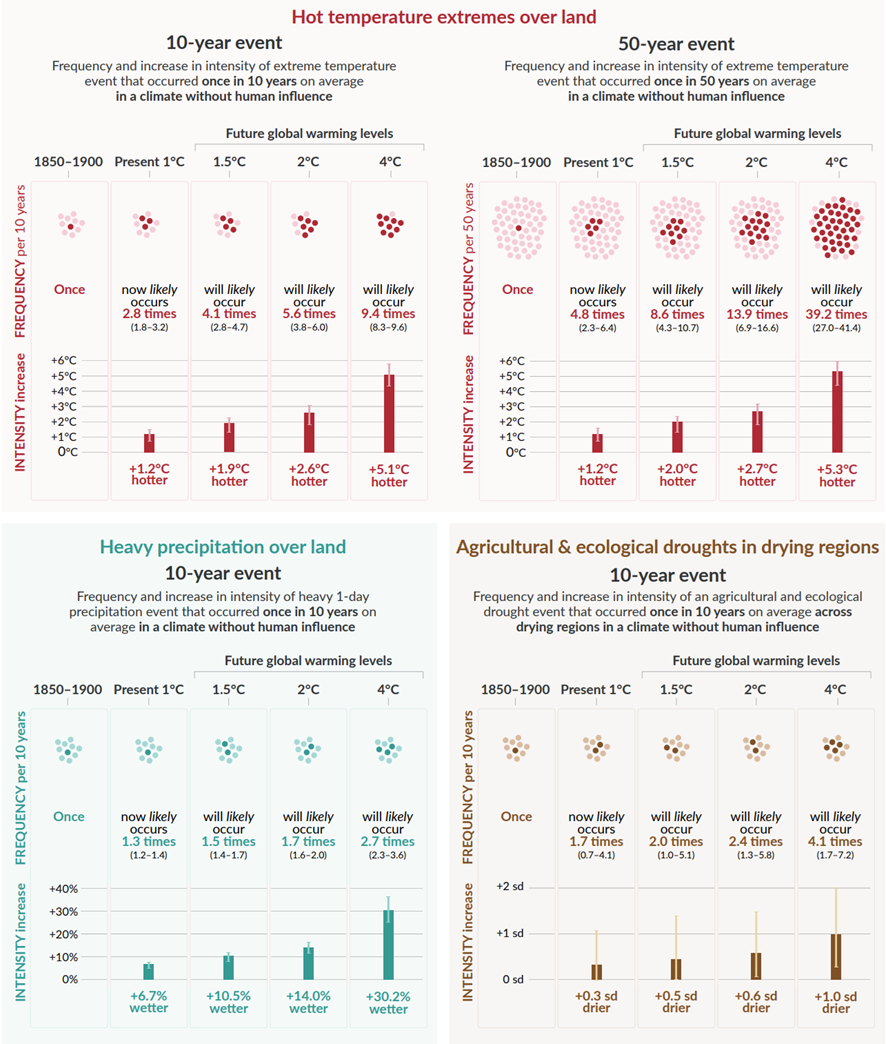
- 550 ppm CO2 (3.6W/m²) brings +32.5°C (global temp.) by 2100
- unseen since a few million years
- Large geographical variability (climate change is not global warming)
- +2.5°C global means +5°C for France
- Really warmer at the poles : +20°C
- No more pole ice cap, less ocean large currents
- Heat transportatrion will be modified
- Events like
- #tempests, strenght of tempest
- #days with extreme temp,
- #consecutive dry days,
- #consecutive wet days, extreme rainfall,
- extreme cold may become more probable(at least in the short term)
- Models are still uncertain
- giving very different results either because of chaos or model error
From global to local
- Basically depends on latitude (higer change on the poles)
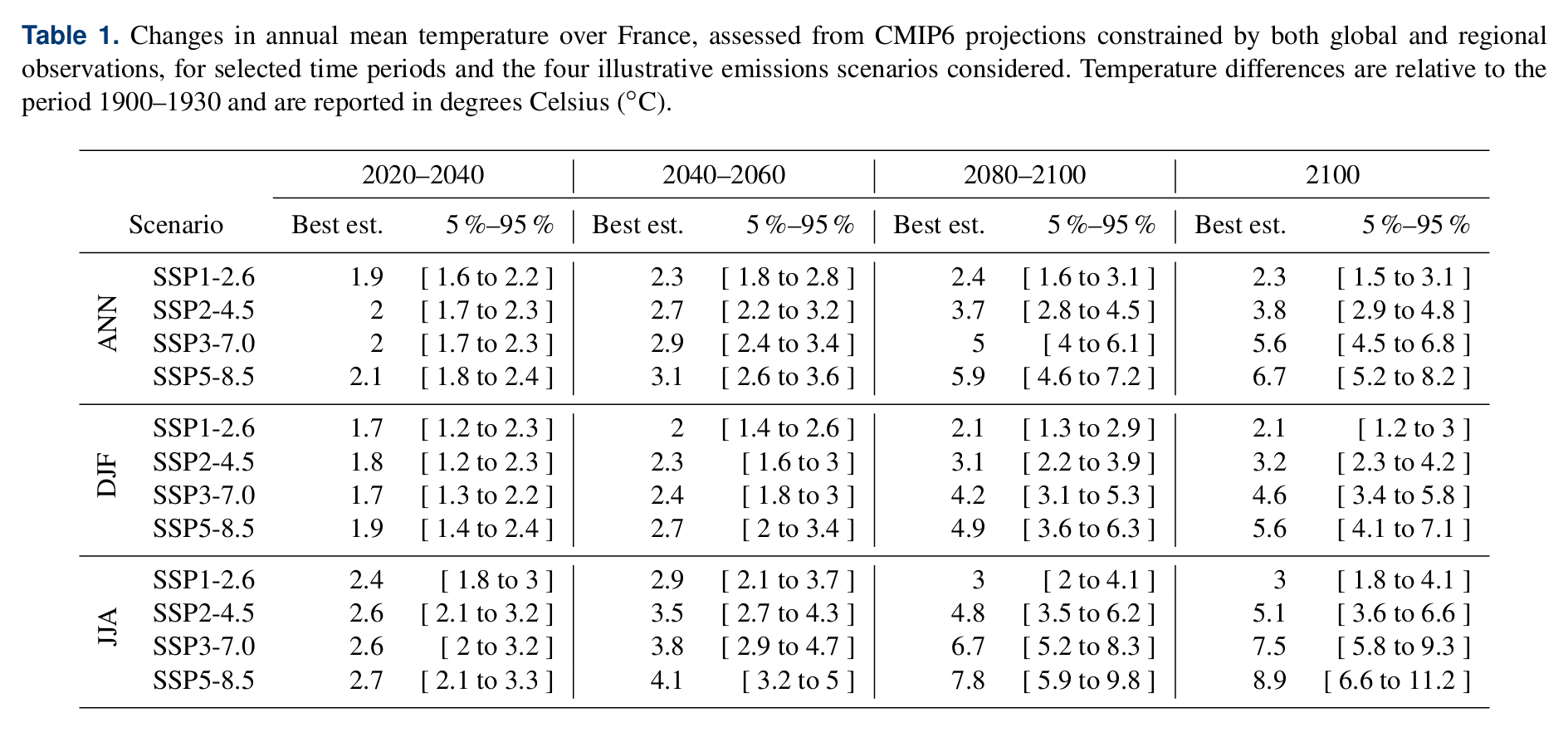
Some consequences can be anticipated
- Higher CO2 lower pH of oceans
- Plancton (the one we know) is very sensitive to pH : mass extinction of plancton
- Or adaptation if plancton is fast enough
- Mass extinction higher in the food chain
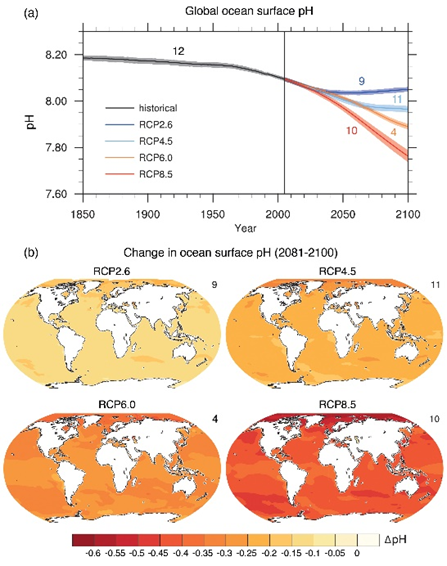
- Massive consequences on agriculture
- Globaly lower yield
- Localy more complex : from collapse to adpation, positive in some places
- Early report for French Agriculture planned adaptation with earlier crops (ealy spring, short winter, no freezing season)
- More extreme events means lower adaptation of human selected species
A (nice) map of consequences
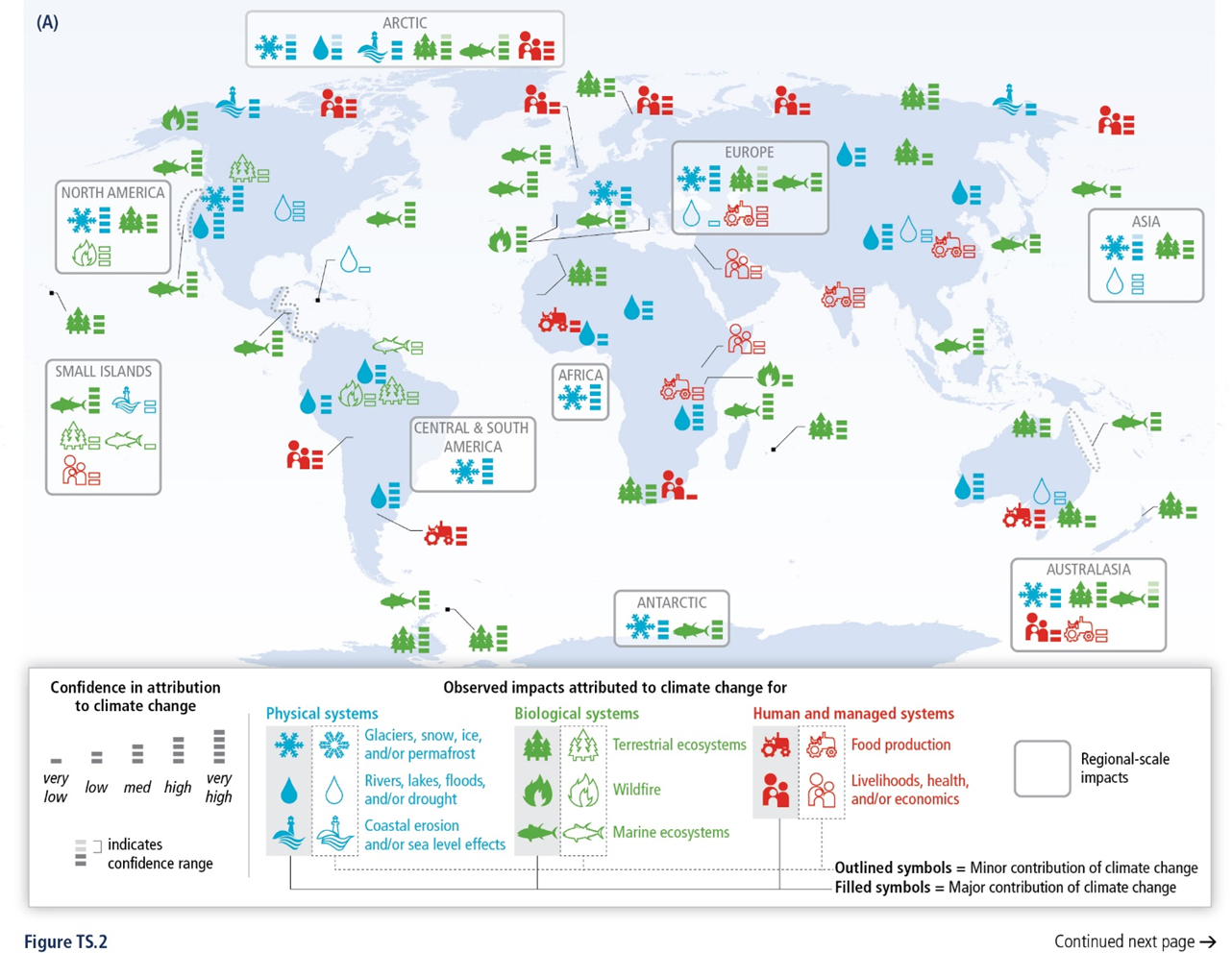
Evaluation of damages: method
\[ \Large \underbrace{alea}_{\color{red}{1}} \times \underbrace{exposition}_{\color{green}{2}} \times \underbrace{vulnerability}_{\color{blue}{3}} \times \underbrace{resilience}_{\color{orange}4} \]
Forecast of aleas
In depth inventory of exposition
Assesment of vulnerability
Understanding of resilience
Public policies can change 1 (mitigation), 2 (displacement) 3 (reinforcement) 4 (change in behaviour)
PESATA from Joint Reasearch Center
Consequences and damages
PESATA from Joint Reasearch Center
Some visual consequences
Conclusion
PESETA IV by JRC
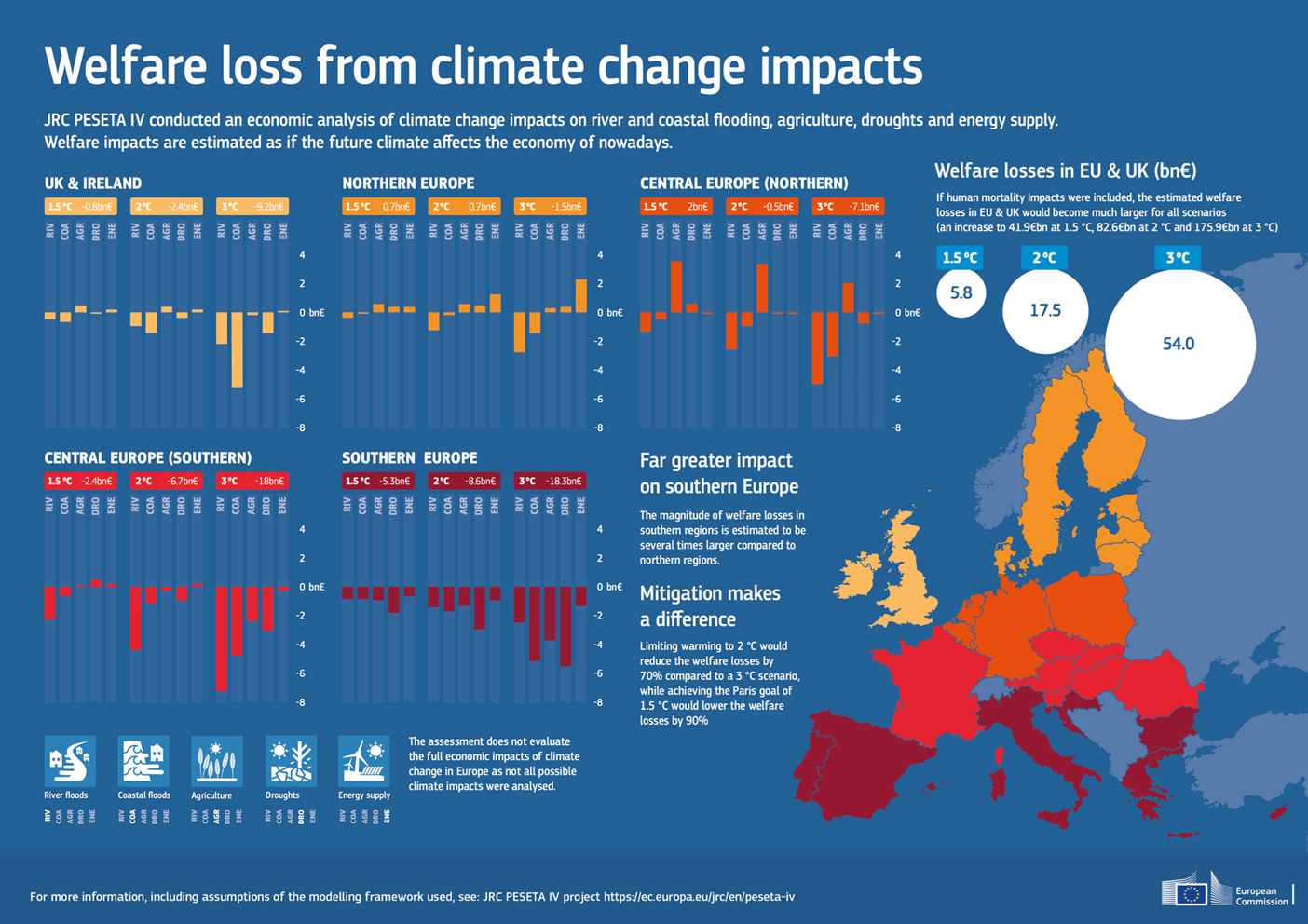
So far, minimal damages; human life on the forefront
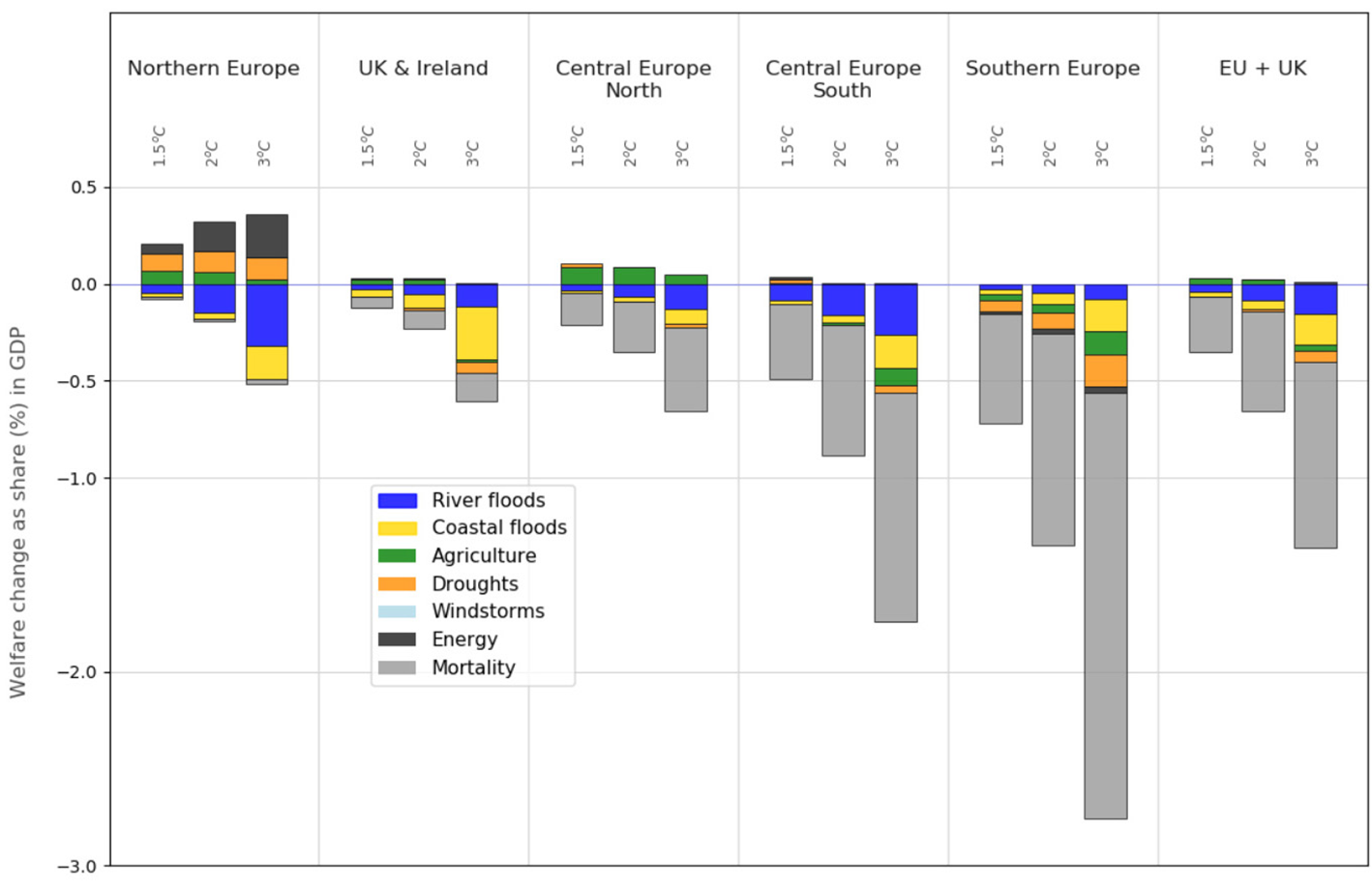
Some visual consequences
Consequences and damages
PESATA from Joint Reasearch Center
Some visual consequences
Conclusion
The end of Cheval Blanc
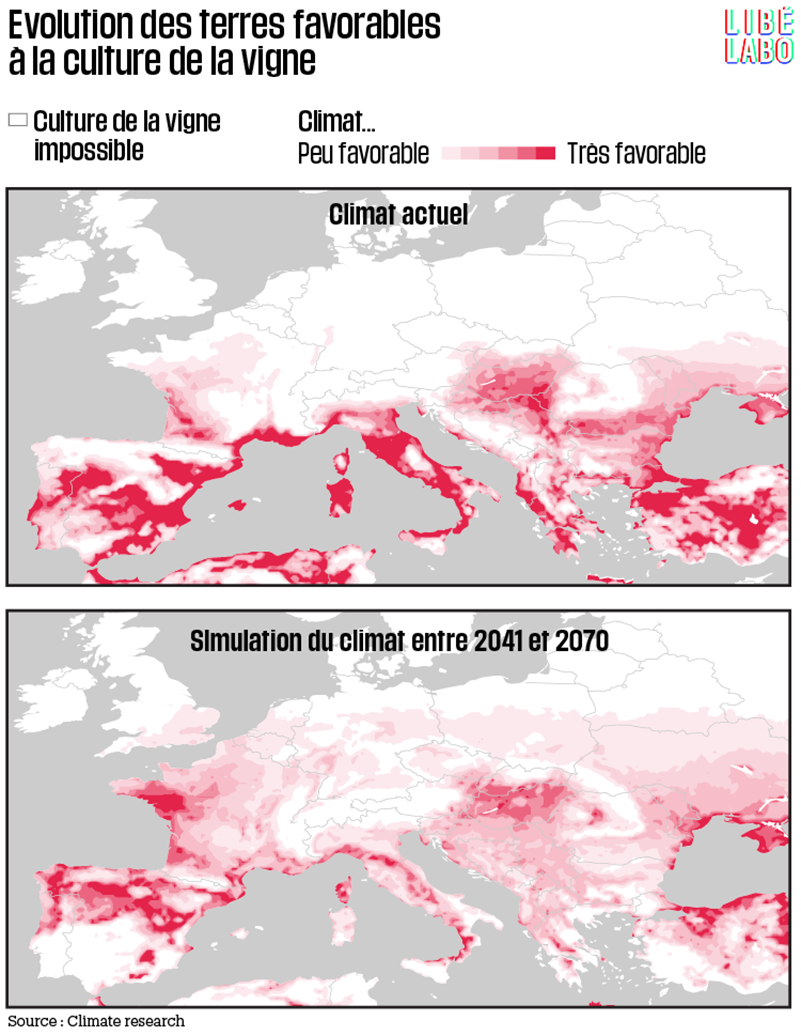
The rise of the Oceans
- For now, below perception level
- 50 mm
- Acccording to IPCC 2007 : 18 to 59 cm in 2100
- Since 2007:
- Accelerated melting of ice
- Revised estimation (IPCC 2014) up to 1.0 meter in 2100
- In the long term, no more ice caps
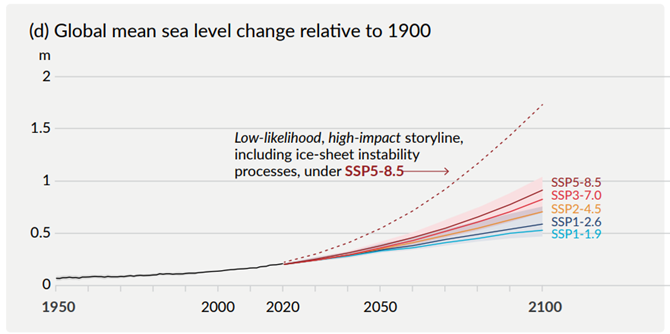

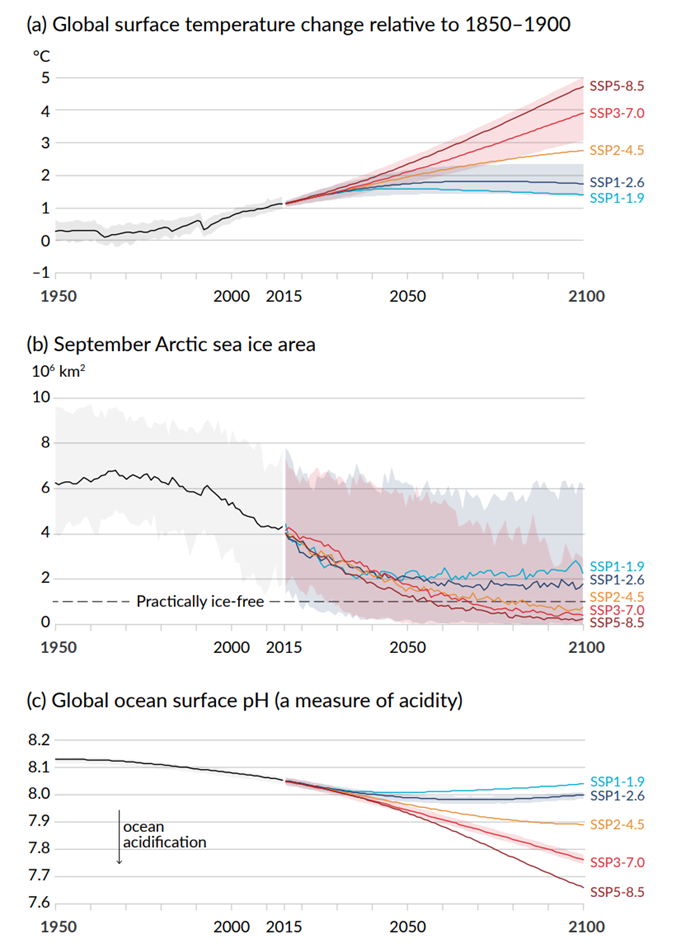
The worse is to come
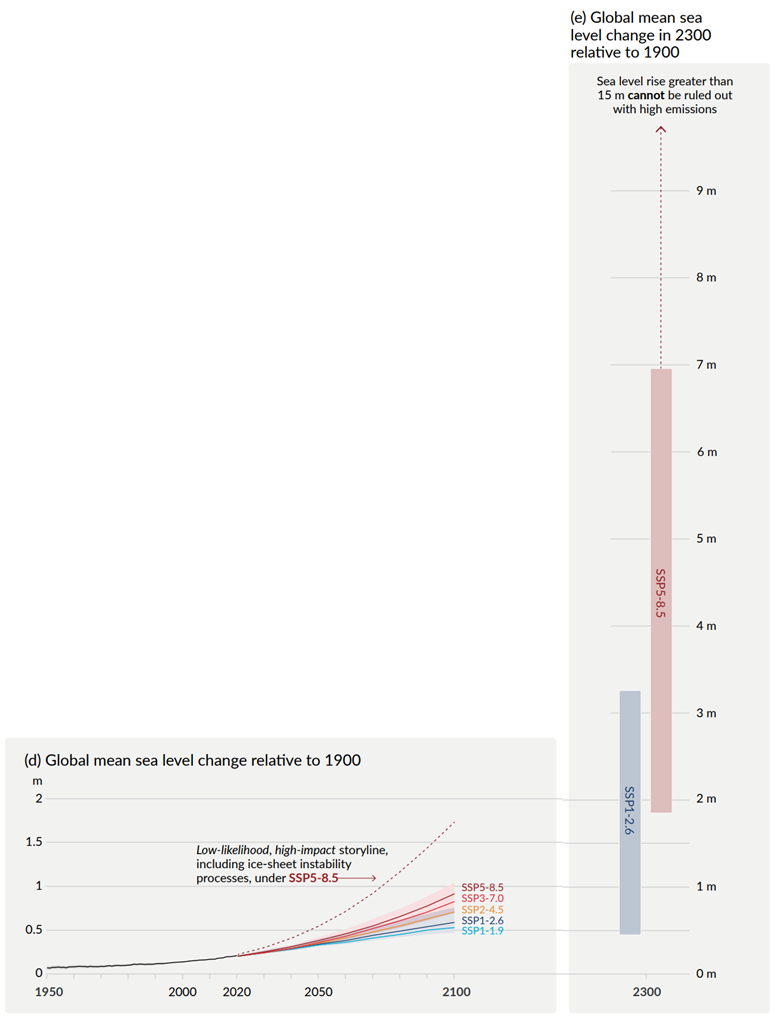
A video on Miami
Conclusion
Consequences and damages
PESATA from Joint Reasearch Center
Some visual consequences
Conclusion
Check your carbon budget


CCCC.1: Consequences and Damages EoE 2025: The Age of Constraints